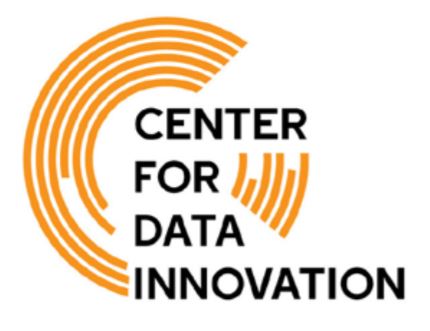Now that energy data access is the law of the land for over 25 million utility customers, it is worth looking at how other sectors of the economy have handled issues of large-scale digitization of personal records. In this post, we look at other industries both inside and outside the U.S. from the perspective of consumer data: How and when is it difficult to access, even when the customer’s permission is obtained? And what might the current state of data sharing in healthcare and personal finance portend about utility data in the years to come?
Healthcare's 'tectonic' shift: Apple brings health records to iPhone
Last month, Apple announced that iOS will support open APIs for health records, putting data in the patient’s device at their request. It’s up to clinics and hospitals to support those APIs, but the fact that the world’s largest publicly-traded company is pushing for healthcare data portability has led some observers to call Apple’s move “tectonic” and a “game-changer.” Aneesh Chopra, the first CTO of the United States under President Obama, penned an op-ed at Wired praising the move. Access to healthcare data in electronic form is a central part of the 1996 law known as HIPAA. But the law itself was not enough to guarantee true portability, similar to how Texas’s laws on energy data did not automatically make Smart Meter Texas a flawless system. Chopra’s “Blue Button” initiative in healthcare (which, incidentally, foreshadowed Green Button) provided the push necessary to impel healthcare providers to make data access as simple as clicking a blue button, rather than the paper-based process of up to 30 days that is allowable under HIPAA.
Apple’s announcement adds tremendous market pull to realizing Blue Button’s vision of user-friendly data portability. The gravitational effect of Apple is necessary to overcome incumbents’ interests that, of course, do not always align with patients’. As one Harvard Medical School doctor put it:
"This represents a major crack in the previously implicit understanding between electronic health record providers and health care systems that data about their patients would only travel in ways that would not increase the ability of patients to get health care elsewhere."
Sound familiar?
Airlines, Banking, Real Estate
What do Southwest Airlines, Multiple Listing Services, TD Bank and your electric utility have in common? They block web-based services from accessing their customers’ information in order to protect their market position. According to a recent report, “Blocked: Why Some Companies Restrict Data Access to Reduce Competition and How Open APIs Can Help” from the Center for Data Innovation, companies prevent competitive markets from evolving by restricting access to publicly-available data or preventing consumers from taking their data elsewhere. Here are some examples:
- Southwest Airlines prevents services like Kayak.com from indexing flight times and fares, making it more difficult for consumers to identify the lowest fares across airlines.
- In the residential real estate industry, Multiple Listing Services (MLS) prevent competitors such as Zillow from accessing up-to-date real estate listings to ensure that real estate brokers earn commissions.
- TD Bank has prevented financial services such as Yodlee and Plaid from accessing their customers’ retail banking data, even with customer permission, to prevent customers from finding better deals at other banks.
Not surprisingly, utilities are less than cooperative when customers want to share their energy data with other providers (read: solar companies) that would result in decreased sales. The Center for Data Innovation has several recommendations: Force companies to provide open APIs, as is happening in banking in Europe with the Payment Service Directive 2 (PSD2). So long as the customer is in charge of his or her data, companies should not be allowed to discriminate against competitors.
Inequitable Equifax
In the digital world, “discrimination” is not merely of the overt variety. Data transfer intermittencies can be introduced selectively by firms seeking to drown their competitors in unpredictable maintenance costs, maintaining deniability all the while. Also, sometimes deliberate interruptions are indistinguishable from incompetence, making the upstart’s task of discerning the two very difficult. One of the best recent examples was Equifax. After losing track of the most sensitive financial information of 143 million Americans, Equifax tried to administer CPR on their reputation by offering a smartphone app that promised consumers the ability to immediately freeze their credit. There was just one problem: It never worked.
If this spectacular mishap sounds familiar to Green Button Connect users, it should. Utilities have been known to provide incorrect energy data and suffer inexplicable outages for two weeks. Was the cause malfeasance or ineptitude? We may never know.
Data Down Under
image credit Rupert Gerritsen, CC BY-SA 3.0
All this is leading some western governments to declare that citizens have property rights in their data. Doing so would rebalance the scales in which consumers are on one side and unaccountable tech giants are on the other. Furthermore, firms that prevent customers from moving their data can be more easily sued for interference. This is akin to suing a lock manufacturer for making the twisting of keys too difficult, preventing easy enjoyment of one’s home.
Last fall, Australia announced it would establish consumers’ property rights in banking, energy and internet usage data as a way to empower consumers. A government report concluded:
"Utilities will be required to provide standard, comparable, easy-to-read digital information, that third parties can readily access. New Commonwealth legislation to give effect to these reforms will be brought forward in 2018."
Ultimately, the Australians’ goal stretches far beyond consumer empowerment and into the competitive fundamentals of a market economy. In a digital world, illiquid consumer data grants tremendous advantages to big firms over smaller ones. The absence of data access distorts markets and prevents good products, at good prices, from winning the day.
"The right for consumers to request that their data be transferred to a third party — be it an entity in the public or private sector or a not-for-profit — is very likely to reinvigorate competition policy,” Australia’s Productivity Commission concluded. “Information asymmetry has long been recognised in economics as a feature that weakens competitive markets.”





